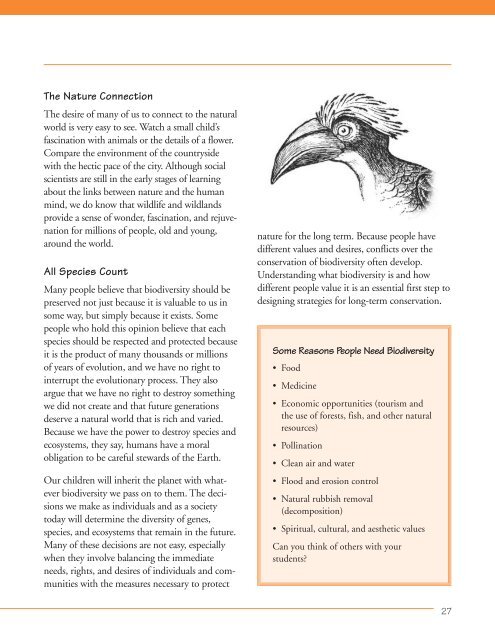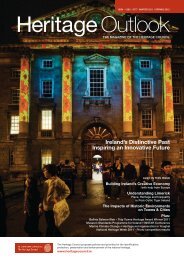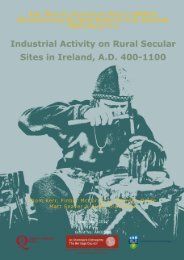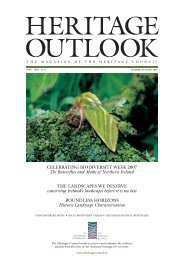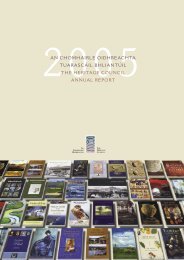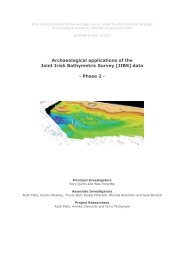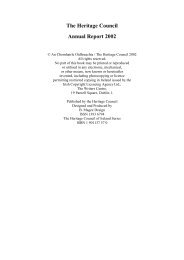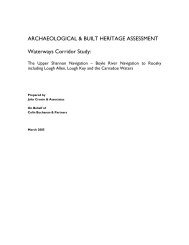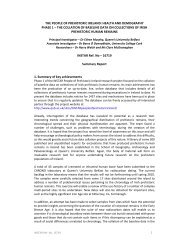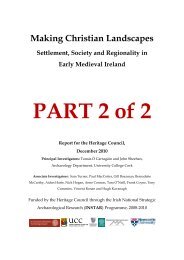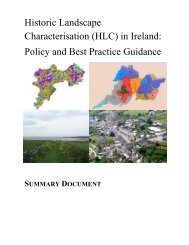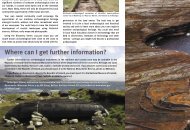EXPLORING BIODIVERSITY: A Guide for Educators Around the World
EXPLORING BIODIVERSITY: A Guide for Educators Around the World
EXPLORING BIODIVERSITY: A Guide for Educators Around the World
Create successful ePaper yourself
Turn your PDF publications into a flip-book with our unique Google optimized e-Paper software.
The Nature Connection<br />
The desire of many of us to connect to <strong>the</strong> natural<br />
world is very easy to see. Watch a small child’s<br />
fascination with animals or <strong>the</strong> details of a flower.<br />
Compare <strong>the</strong> environment of <strong>the</strong> countryside<br />
with <strong>the</strong> hectic pace of <strong>the</strong> city. Although social<br />
scientists are still in <strong>the</strong> early stages of learning<br />
about <strong>the</strong> links between nature and <strong>the</strong> human<br />
mind, we do know that wildlife and wildlands<br />
provide a sense of wonder, fascination, and rejuvenation<br />
<strong>for</strong> millions of people, old and young,<br />
around <strong>the</strong> world.<br />
All Species Count<br />
Many people believe that biodiversity should be<br />
preserved not just because it is valuable to us in<br />
some way, but simply because it exists. Some<br />
people who hold this opinion believe that each<br />
species should be respected and protected because<br />
it is <strong>the</strong> product of many thousands or millions<br />
of years of evolution, and we have no right to<br />
interrupt <strong>the</strong> evolutionary process. They also<br />
argue that we have no right to destroy something<br />
we did not create and that future generations<br />
deserve a natural world that is rich and varied.<br />
Because we have <strong>the</strong> power to destroy species and<br />
ecosystems, <strong>the</strong>y say, humans have a moral<br />
obligation to be careful stewards of <strong>the</strong> Earth.<br />
Our children will inherit <strong>the</strong> planet with whatever<br />
biodiversity we pass on to <strong>the</strong>m. The decisions<br />
we make as individuals and as a society<br />
today will determine <strong>the</strong> diversity of genes,<br />
species, and ecosystems that remain in <strong>the</strong> future.<br />
Many of <strong>the</strong>se decisions are not easy, especially<br />
when <strong>the</strong>y involve balancing <strong>the</strong> immediate<br />
needs, rights, and desires of individuals and communities<br />
with <strong>the</strong> measures necessary to protect<br />
nature <strong>for</strong> <strong>the</strong> long term. Because people have<br />
different values and desires, conflicts over <strong>the</strong><br />
conservation of biodiversity often develop.<br />
Understanding what biodiversity is and how<br />
different people value it is an essential first step to<br />
designing strategies <strong>for</strong> long-term conservation.<br />
Some Reasons People Need Biodiversity<br />
• Food<br />
• Medicine<br />
• Economic opportunities (tourism and<br />
<strong>the</strong> use of <strong>for</strong>ests, fish, and o<strong>the</strong>r natural<br />
resources)<br />
• Pollination<br />
• Clean air and water<br />
• Flood and erosion control<br />
• Natural rubbish removal<br />
(decomposition)<br />
• Spiritual, cultural, and aes<strong>the</strong>tic values<br />
Can you think of o<strong>the</strong>rs with your<br />
students?<br />
27


